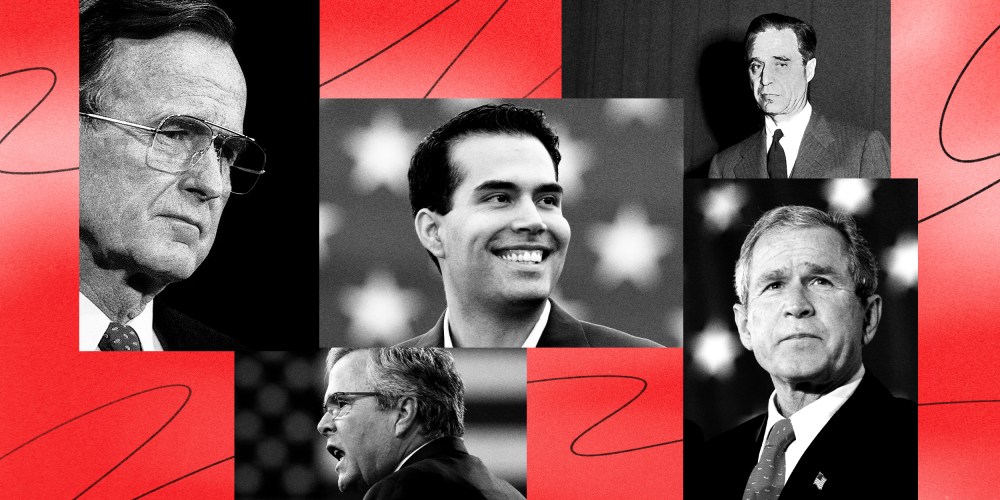Last week, George Prescott Bush announced that he would run for Texas attorney general next year. It’s a definite power play from Bush, the land commissioner in a state where former President George W. Bush, his uncle, was once governor. He’s the last of the Bush lineage still in political office.
There are dynasties and then there are dynasties. No matter how you feel about them, the Bush family has been one of the most influential clans in modern U.S. history. Like most political families in the U.S., the Bushes have stayed loyal to one party — the Republican Party, in their case.

But despite an unbroken string of service — including two presidencies, two governorships and a combined 14 years in Congress — the Republican Party has not always returned the favor. It’s been up to each member to evolve with the party or be discarded. Now, the youngest member of the line has decided his political future requires embracing former President Donald Trump, a man who’s gone of his way to reject and scorn everything his family has done.
I don’t just mean to say he supports Trump casually. No, Trump is already a central part of his sales pitch to Texas voters. Some of his campaign’s first merchandise features Trump and George P. shaking hands with a quote from the former president: “This is the only Bush that likes me! This is the Bush that got it right. I like him.”
I missed out on the @georgepbush swag yesterday: The koozie says “this is the only Bush that likes me. This is the Bush that got it right. I like him” – Donald Trump #txlege pic.twitter.com/pFTzQCmoRG
— Scott Braddock (@scottbraddock) June 3, 2021
Bush said in a Fox Radio interview Friday: “My argument is, look, when Bushes and Trumps come together, good things happen. … We make a really good team. Dad gets it.”
It’s quite the supplication from someone who has connections to decidedly less criminal politicians that he can highlight in his campaign. It’s also harsh given the things Trump said about his father — former Florida Gov. Jeb Bush — during the 2016 presidential campaign, including calling him “Low Energy Jeb,” “dumb as a rock” and an “embarrassment to his family.”
It’s quite the supplication from someone with connections to decidedly less criminal politicians that he can highlight in his campaign.
But this isn’t the same party that Sen. Prescott Bush, R-Conn., George P.’s great-grandfather, served in. Back in the Eisenhower era, Prescott Bush was a typical Northeastern Republican — liberal-ish on social policies, with strong ties to big business. When he retired in 1963, the party was already beginning to shift around him. The following year, his former colleague Sen. Barry Goldwater, R-Ariz., would win the GOP nomination for president, marking a rightward swing that hasn’t halted since then.
By the time his son George Herbert Walker Bush became vice president in 1981, the party was in the thrall of Reaganism. While moderate himself, George H.W. used the assignments President Ronald Reagan gave him, including leading a task force to slash government regulations, to get in good with the Republicans’ more conservative wing. When he ran for president again in 1988, his victory grew from his embrace of the sharper, more negative tactics championed by his advisers, who included the likes of Roger Ailes, who would go on to build Fox News, and Lee Atwater, the infamous GOP political operative.
Once in office, Bush would find that he couldn’t keep up with the deepening conservatism of the party. His campaign pledge to never raise taxes ran up against the realities of governing — George H.W. never recovered from the fuss that was raised among the anti-tax maximalists. He went on to lose his bid for re-election in 1992 to Bill Clinton. But Clinton would two years later face the wave of right-wing Republicans swept into office on the promise of Newt Gingrich and Dick Armey’s Contract with America. For all he tried to match their intensity, George H.W. was already too moderate for what the GOP was becoming.













